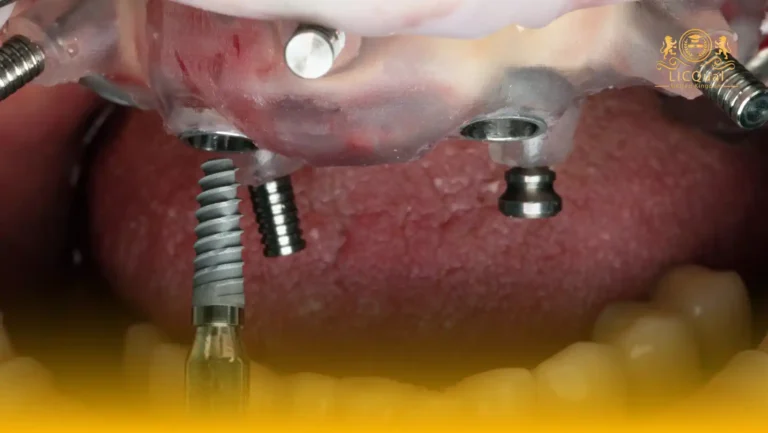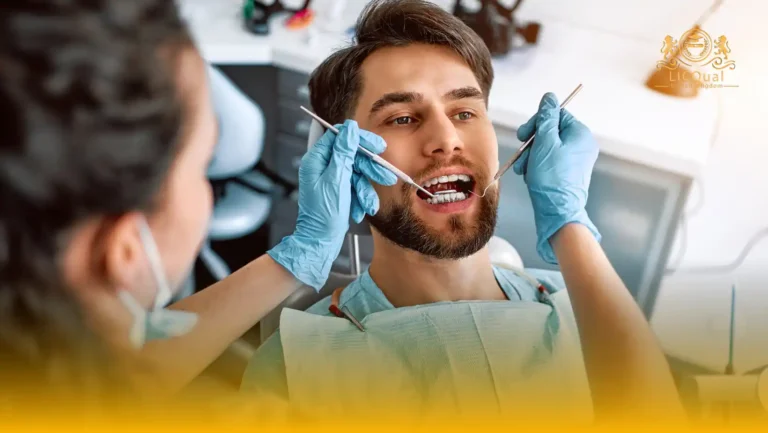The LICQual Level 6 Diploma in Aesthetic Dermatology (Dip Aesthetic Dermatology) is an advanced qualification designed for healthcare professionals who wish to specialize in aesthetic dermatology and non-surgical cosmetic procedures. This diploma is not intended for fresh candidates; it is specifically tailored for experienced clinicians seeking to enhance their career prospects, broaden their clinical expertise, and strengthen their Continuing Professional Development (CPD).
Learners undertaking this programme will gain in-depth knowledge of skin anatomy, physiology, and pathology, alongside advanced training in a range of aesthetic procedures including botulinum toxin treatments, dermal fillers, chemical peels, laser therapies, and skin rejuvenation techniques. The course emphasises evidence-based practice, patient safety, ethical considerations, and regulatory compliance, equipping learners with the skills to deliver high-quality, patient-centred aesthetic care.
Centres delivering the LICQual Level 6 Diploma in Aesthetic Dermatology are required to uphold the highest standards of training. This includes employing competent and qualified staff, providing access to modern clinical facilities, procedural equipment, and comprehensive learning resources, and ensuring all necessary materials are available to support learner success. Such infrastructure guarantees a rigorous, practical, and engaging learning experience, enabling learners to apply theoretical knowledge effectively in clinical settings.
By completing this diploma, learners will enhance their professional credibility, develop advanced practical skills, and gain recognized accreditation in aesthetic dermatology. This qualification equips learners to deliver safe, effective, and innovative aesthetic treatments, contribute to multidisciplinary teams, and advance their careers in both clinical and cosmetic dermatology practice.
Course Overview
Qualification Title
LICQual Level 6 Diploma in Aesthetic Dermatology (Dip Aesthetic Dermatology)
Total Units
6
Total Credits
120
GLH
480
Qualification #
LICQ2200954
Qualification Specification
To enroll in the LICQual Level 6 Diploma in Aesthetic Dermatology (Dip Aesthetic Dermatology), applicants must meet the following criteria:
|
Qualification# |
Unit Title |
Credits |
GLH |
|---|---|---|---|
|
LICQ2200954-1 |
Fundamentals of Skin Science |
20 |
80 |
|
LICQ2200954-2 |
Patient Assessment and Consultation |
20 |
80 |
|
LICQ2200954-3 |
Non-Surgical Aesthetic Procedures |
20 |
80 |
|
LICQ2200954-4 |
Laser and Light-Based Therapies |
20 |
80 |
|
LICQ2200954-5 |
Evidence-Based Practice and Innovation in Aesthetic Dermatology |
20 |
80 |
|
LICQ2200954-6 |
Professional Practice and Continuing Development in Aesthetic Dermatology |
20 |
80 |
By the end of this course, learners will be able to:
Unit 1: Fundamentals of Skin Science
By the end of this unit, learners will be able to:
- Critically evaluate the anatomy, physiology, and histology of the skin.
- Analyse common dermatological conditions and their effects on aesthetics and patient wellbeing.
- Demonstrate understanding of the biological mechanisms behind skin ageing, pigmentation changes, and scarring.
- Apply ethical and legal considerations in aesthetic dermatology practice.
Unit 2: Patient Assessment and Consultation
By the end of this unit, learners will be able to:
- Conduct comprehensive patient assessments, including medical history, skin analysis, and risk evaluation.
- Develop personalised treatment plans based on clinical findings and patient objectives.
- Apply effective communication skills to manage patient expectations and obtain informed consent.
- Integrate professional and ethical standards in all patient consultations.
Unit 3: Non-Surgical Aesthetic Procedures
By the end of this unit, learners will be able to:
- Demonstrate understanding of botulinum toxin treatments, dermal fillers, chemical peels, mesotherapy, and skin rejuvenation techniques.
- Evaluate safety protocols, contraindications, and post-procedure care.
- Apply practical skills to deliver safe and effective non-surgical aesthetic treatments.
- Monitor patient outcomes and manage complications professionally.
Unit 4: Laser and Light-Based Therapies
By the end of this unit, learners will be able to:
- Critically assess the principles of laser physics, light-based technologies, and phototherapy.
- Evaluate clinical applications for skin resurfacing, hair removal, pigmentation, and vascular lesions.
- Demonstrate competence in safety measures, contraindications, and treatment planning.
- Apply practical skills in laser and light-based aesthetic procedures.
Unit 5: Evidence-Based Practice and Innovation in Aesthetic Dermatology
By the end of this unit, learners will be able to:
- Critically analyse current research, clinical guidelines, and emerging trends in aesthetic dermatology.
- Apply evidence-based approaches to improve treatment outcomes and patient safety.
- Design and evaluate clinical audits, outcome measures, and quality improvement initiatives.
- Utilise research findings to inform innovative treatment techniques and practice development.
Unit 6: Professional Practice and Continuing Development in Aesthetic Dermatology
By the end of this unit, learners will be able to:
- Demonstrate professionalism, ethical responsibility, and governance in aesthetic practice.
- Apply leadership, teamwork, and multidisciplinary collaboration skills.
- Engage in Continuing Professional Development (CPD) to maintain clinical competence.
- Implement reflective practice to evaluate performance, enhance patient outcomes, and support career progression.
This advanced diploma is designed for experienced healthcare professionals who wish to specialize in aesthetic dermatology, enhance their clinical expertise, and advance their careers. Learners who will benefit most include:
- Medical practitioners and clinicians specialising in dermatology, cosmetic medicine, or facial aesthetics.
- Dentists seeking advanced training in non-surgical facial aesthetic procedures.
- Nurses, physician associates, and allied healthcare professionals involved in aesthetic treatments or patient care.
- Clinical fellows, trainees, or specialists aiming to develop advanced practical skills in botulinum toxin, dermal fillers, chemical peels, and laser therapies.
- Healthcare professionals committed to Continuing Professional Development (CPD) and seeking recognised accreditation in aesthetic dermatology.
- Experienced professionals aspiring to expand their knowledge, implement evidence-based treatments, and deliver safe, high-quality patient care.
This course is not suitable for fresh candidates, ensuring that learners have the necessary professional experience to fully engage with advanced theoretical knowledge, practical skills, and patient-focused applications.
To deliver the LICQual Level 6 Diploma in Aesthetic Dermatology effectively, centres must uphold high standards of professional expertise, clinical facilities, and learning resources. The following requirements are essential:
- Qualified and Competent Staff: Centres must employ experienced clinicians, dentists, nurses, and healthcare professionals with recognised qualifications in dermatology, aesthetic medicine, or related fields. Staff should be capable of delivering both theoretical knowledge and practical guidance in aesthetic procedures.
- Comprehensive Learning Resources: Centres should provide learners with access to up-to-date textbooks, research publications, clinical guidelines, case studies, and digital learning platforms to support evidence-based practice and advanced learning.
- Clinical and Procedural Facilities: Centres must ensure access to fully equipped clinical treatment rooms, procedural equipment, laser and light-based therapy devices, and simulation tools to enable learners to practise aesthetic techniques safely and effectively.
- Assessment and Evaluation Systems: Centres must implement robust systems for learner assessment, practical evaluations, feedback, and progression tracking to ensure all learners achieve the required competency standards.
- Health and Safety Compliance: Centres are required to adhere to all relevant health, safety, and regulatory standards, providing a safe, professional, and hygienic learning environment for all learners.
- Support for Continuing Professional Development (CPD): Centres should actively support learners in CPD activities, reflective practice, and ongoing professional development to maintain clinical competence and promote career advancement in aesthetic dermatology.
Meeting these requirements ensures that learners receive a high-quality, professional, and engaging learning experience, equipping them with the knowledge, skills, and confidence to succeed in clinical, cosmetic, and leadership roles within aesthetic dermatology practice.
Assessment and Verification
All units within this qualification are subject to internal assessment by the approved centre and external verification by LICQual. The qualification follows a criterion-referenced assessment approach, ensuring that learners meet all specified learning outcomes.
To achieve a ‘Pass’ in any unit, learners must provide valid, sufficient, and authentic evidence demonstrating their attainment of all learning outcomes and compliance with the prescribed assessment criteria. The Assessor is responsible for evaluating the evidence and determining whether the learner has successfully met the required standards.
Assessors must maintain a clear and comprehensive audit trail, documenting the basis for their assessment decisions to ensure transparency, consistency, and compliance with quality assurance requirements.







